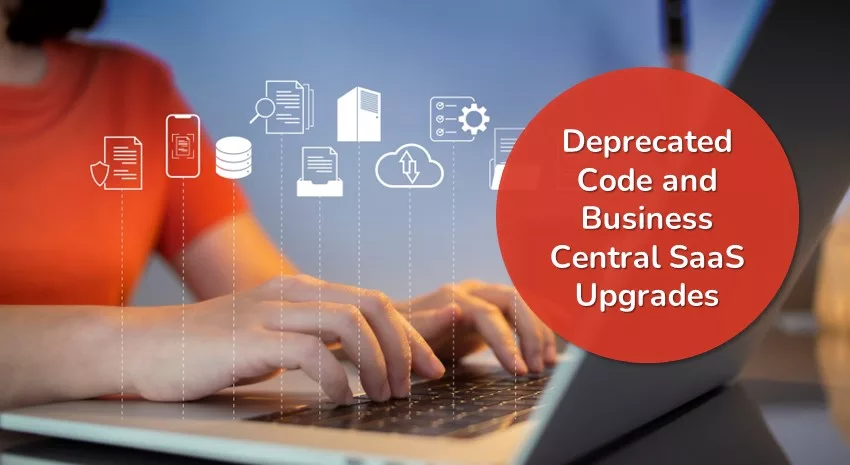Partner Support Is Crucial for Dynamics 365 Business Central SaaS Deprecated Code

Business approaches are changing all the time, and moving to Dynamics 365 Business Central SaaS offers IT departments the ability to focus on operations and leverage Microsoft ERP expertise with its online platform. The upside, of course, is no hardware or software to buy and maintain. However, companies need to be aware that code deprecations found in Microsoft major wave updates can present challenges to your SaaS environment due to independent software vendor (ISV) or ERP partner customizations
The challenge for many mid-size companies is the lack of awareness of these deprecated code changes due to a lack of IT technical support on staff and no ERP solutions partner to help with these upgrades.
Plus, these major releases keep coming. Microsoft releases two wave upgrades each year and this year revealed BC 20 in April 2022 and the next one is due in October 2022. Microsoft also publishes a list of deprecated code that will be eliminated in upcoming major releases, at least a year ahead of time.
Many companies choose a SaaS online environment to avoid the costs in managing hardware, software, databases, and operating systems. However, the perception remains that once a company is using Business Central SaaS that an ERP solutions partner isn’t needed since Microsoft is updating and taking responsibility for code development.
However, the responsibility for any previous extensions or customizations that touches deprecated code resides with an ISV or an ERP solutions partner, and companies can miss this component when moving to Business Central SaaS and letting go of their partners.
Getting Your Customized Extensions Tested by ERP Partners
Microsoft has released seven major updates of Business Central since 2019, with BC 14 being the first to arrive in 2019. The overall theme for Business Central is continuous improvement from Microsoft, so many earlier features connected to Dynamics NAV are being removed.
However, this can create incompatibilities with current business setups, such as smtp email and permissions from the last major release.
Of course, incompatibilities with previous features may take time to emerge for companies. For example, a customization by an ISV or ERP partner in BC 15 may have worked fine for the last three years. However, a company may not know that recent deprecated code by Microsoft will affect these extensions in the next release of BC 22 due to limited IT technical expertise with their own staff or a lack of an ERP partner.
To alleviate this challenge, Microsoft communicates directly with ISVs and ERP partners through a program called the Ready-to-Go for Dynamics 365 Business Central. With this program, Microsoft shares daily development with partners to make sure they keep testing extensions compatibility for the next major release. The technical term for partners and ISVs is called the insider build and this is not accessible to the public and customers, just to ERP partners to see what happens when code gets deprecated.
If a company does have an ERP partner, the partner will reach out to the customer and work on the deprecated code. Microsoft gives 90 days of an upgrade window to developers in conjunction with a major release, so ERP partners can solve issues tied to customized extensions and make sure it is compatible with the release.
Deprecated Code in 2022
Currently, ERP partners are paying attention to the legacy sales pricing feature in Business Central. Microsoft has deprecated sales pricing for the upcoming release in October by combing sales price and purchase price, while creating a unique pricing engine; this would apply to all these functions.
In the Wave 1 major release in April 2022, Microsoft made large enhancements on the emailing engine, and authentications and permissions in Business Central. Customers, who had customizations related to emails, had challenges with this release. In this case, the code required refactoring to adopt a new emailing engine. Permissions were previously stored as data in Dynamics NAV and then Microsoft changed it to an object, a code segment. Microsoft also deprecated Basic Authentication and replaced it with OAuth. Customers who were using third party integration via API or webservices have to reconfigure those solutions.
Dynamics 365 Business Central SaaS Stay Current Assurance Plans
Ensure your custom code, ISV add-ons, and functionality work the way you expect. ArcherPoint’s stay current assurance plans for Business Central online guarantee that you’re in control of your go-live with each release.
Trending Posts
Stay Informed
Choose Your Preferences
"*required" indicates required fields
